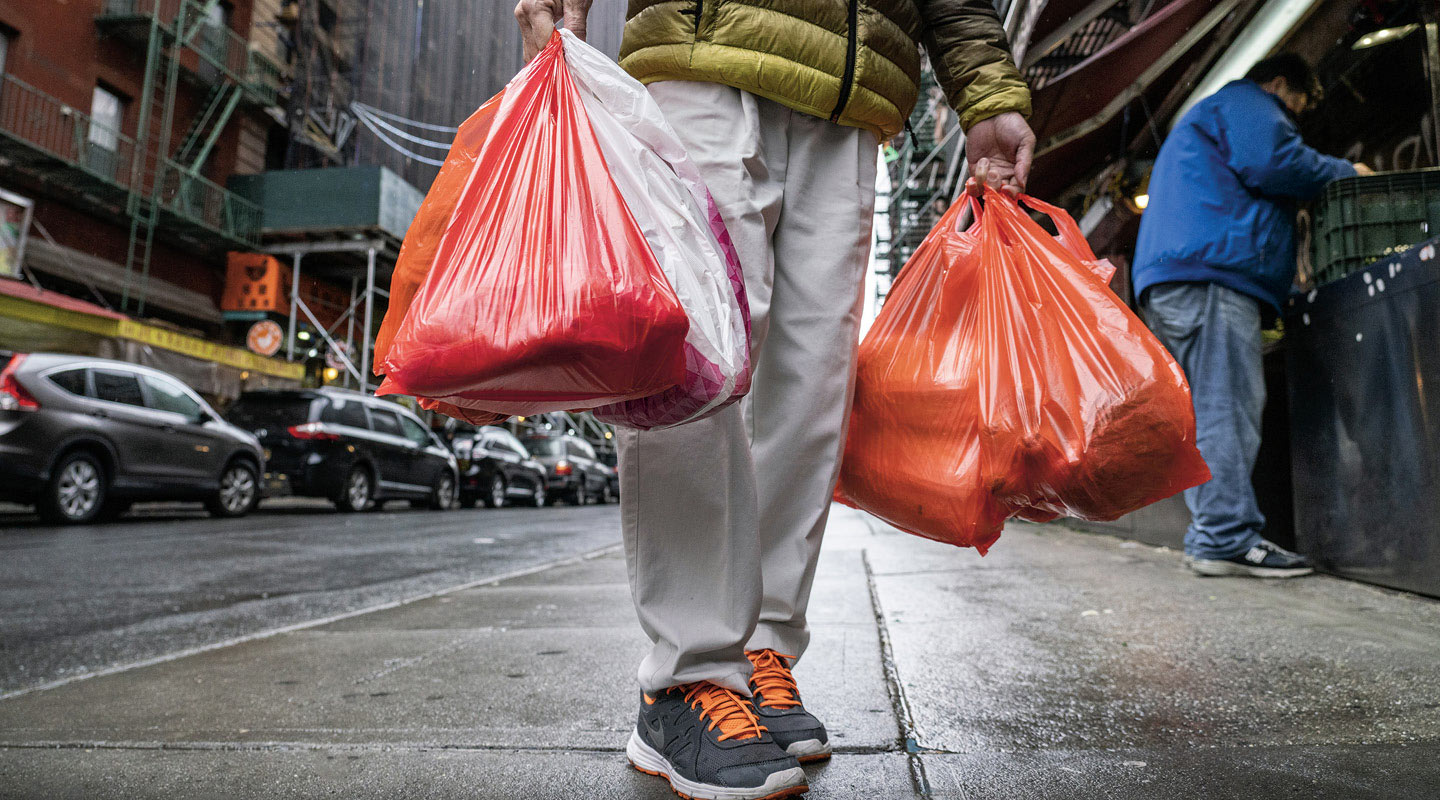Paper or plastic? That’s a question New Yorkers won’t hear at the supermarket checkout counter anymore. A ban on disposable plastic bags went into effect in the state of New York at the start of last month, in an effort to cut down on plastic waste.
“For far too long, these bags have blighted our environment and clogged our waterways,” New York Governor Andrew Cuomo said in a statement proposing the ban last year.
New York has joined a growing list of places enacting legislation on single-use plastic bags (see map, below). Three other states—California, Hawaii,* and Oregon—already have bans on plastic bags, and four more states recently passed bans that will go into effect either later this year or next. More than 400 cities, towns, and counties have also banned plastic bags or placed taxes or fees on their use. But a number of states have moved in the opposite direction: They’ve banned plastic bag bans, arguing that they do more harm than good.
To many environmental advocates, though, New York’s law is the right call. They hope it leads to the end of single-use plastic bags in a lot more states.
“This is the first really big push back against disposable culture,” says Peter Iwanowicz of Environmental Advocates of New York, which promoted the ban. “This feels to me like a seminal moment,” he adds, “like the first indoor smoking bans or tobacco taxes.”
Paper or plastic? That’s a question New Yorkers won’t hear at the supermarket checkout counter anymore.
A ban on disposable plastic bags went into effect in the state of New York at the start of last month. The move is part of an effort to cut down on plastic waste.
“For far too long, these bags have blighted our environment and clogged our waterways,” New York Governor Andrew Cuomo said in a statement proposing the ban last year.
New York has joined a growing list of places enacting legislation on single-use plastic bags (see map, facing page). Three other states—California, Hawaii,* and Oregon—already have bans on plastic bags. Four more states recently passed bans that will go into effect either later this year or next. And more than 400 cities, towns, and counties have also banned plastic bags or placed taxes or fees on their use. But some states have moved in the opposite direction. They’ve banned plastic bag bans, arguing that they do more harm than good.
Still, many environmental advocates consider New York’s law to be the right call. They hope it leads to the end of single-use plastic bags in a lot
more states.
“This is the first really big push back against disposable culture,” says Peter Iwanowicz of Environmental Advocates of New York, which promoted the ban. “This feels to me like a seminal moment,” he adds, “like the first indoor smoking bans or tobacco taxes.”

